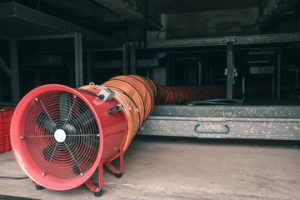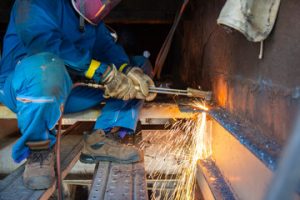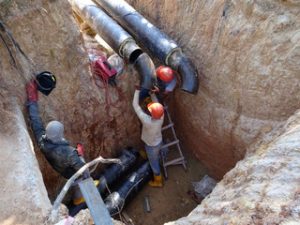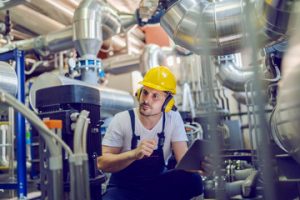As the leader in Workplace Safety Training in Cambodia, SMCS RISK constantly reminds our clients and individuals who have to perform work duties in confined spaces, that without proper training delivered by qualified and experienced Instructors, the risk of injury or even death is high if you don’t understand the risks and aren’t able to identify hazards in confined spaces.
Working in confined spaces is much more dangerous than most people imagine. While working in tight spaces is hazardous even with proper training, if you are not trained in how to identify hazards in confined spaces, then the risk is greatly amplified.
Here are some of the most common hazards faced when working in confined spaces.
 Air quality
Air quality
One of the most palpable hazards associated with working in confined spaces is poor air quality, with insufficient oxygen or poisonous substances having immediate effects on a person working in a confined space. Natural ventilation alone often cannot be relied upon, and proactive measures must be taken to ensure that the person working in a confined space is able to obtain sufficient oxygen and stays protected from harmful substances. The use of air ventilation equipment, breathing apparatus and face masks with filters may be required whilst working in a confined space.
 Fire hazards
Fire hazards
A fire can have devastating results in any confined or enclosed space. Confined spaces not only expose workers to greater dangers from smoke and heat than would be usual in an indoor area, but can restrict a workers exit in the event of a fire in the confined space. It is important that people working in confined spaces are trained in fire safety and have basic fire fighting equipment in close proximity, in the event a fire does start in the confined space they are working in.
 Crushing or trapping hazards
Crushing or trapping hazards
When working underground or in confined spaces that have unstable surroundings, the risk of a cave in or collapse of the surrounding area can be high. Crushing or trapping hazards must be removed as far as possible before a person enters a confined space and all workers must be equipped with personal protective equipment such as hard hats, protective gloves and safety goggles, that are manufactured to a high safety standard.
 High noise levels
High noise levels
High noise levels in confined spaces can be far more damaging than they are in wide open spaces. Employees working in locations that have heightened noise levels are at particular risk of sustaining serious hearing damage if they are not wearing hearing protection such as ear plugs and ear muffs. Exposure to sustained noise in confined spaces should be limited as far as possible.
Working in confined spaces is dangerous business. The risk of injury or even death to a person who is not properly trained to identify hazards and has not been given the appropriate safety equipment, is extremely high.
Undertaking SMCS RISK’s 3 day training course could save your life. Contact SMCS RISK to find out when our next Working In Confined Spaces Training Course is being held in Cambodia.